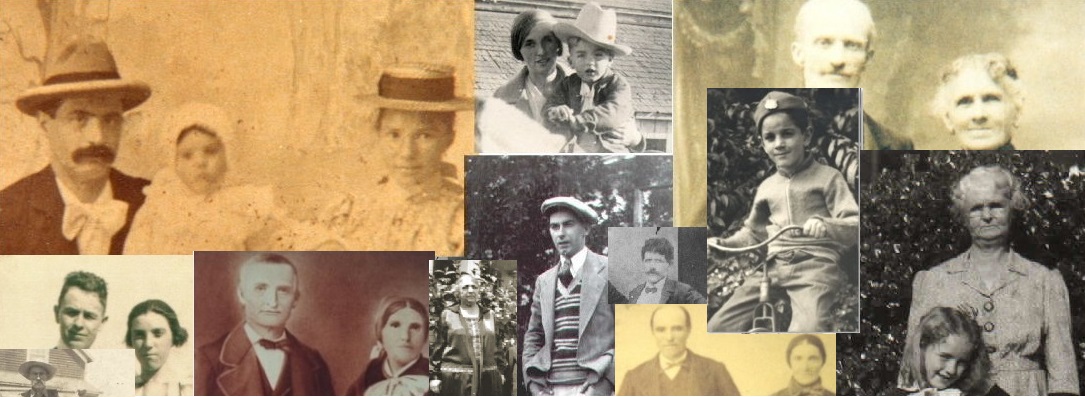Okay, they didn’t really pick their surname out of a hat, but they might as well have. When I began researching the Pacheco family who went from Achada, Nordeste, Sao Miguel Island, Azores to Kilauea, Kauai, Hawaii, I was told that some of them were known by Algrava or Algarva depending on who I talked to.
But, where did this surname come from? Let’s explore it, shall we?
The root of this surname
First off, neither Algrava or Algarva is a Portuguese surname. In this long line of people who couldn’t read or write, it was what their children heard and the way they decide spell it.
Since the same person could spell it differently on different records and children within the same family used both versions, there was no consensus on spelling. And, they really didn’t care. Spelling conformity wasn’t a thing in 1900.
At the turn of the century most of the Pachecos in Hawaii or California didn’t get more than a 6th grade education if any education at all.
So, where did it originate?
We have to look at when the surname started to appear to get an idea of what it was supposed to be. Because, even between the Pacheco Brothers there were variations.
Antonio Pacheco was the first to use it. In 1902/1903, he had membership in the Santo Antonio Society in Hawaii. On his certificate he said his name was Antonio Pacheco Algravio. He also errantly gave his father this name

His death certification has Antonio Pacheco Algarvio. But the file at St. Mary’s cemetery has Antonio Pacheco Algravia. To top it off, his tombstone says Antonio Pacheco Algravia. In between on the census, marriage record, and other documents he is merely Antonio Pacheco.
Same situation for his brother, Manoel Pacheco. I found Manoel using these variants: Algarva, Algrava, Algravia, Pacheco Algravia, and Algalva. Some death records have him as Manuel P. Algravia, but his obituary has him as Manuel P. Algrava.
What the heck?!? See, no one really knew how to spell it. And, the next generation just gave up and went with Algrava or Algarva.
Why did they add this extra surname anyway?
I honestly don’t know. I’ve researched this tree well into the 1700s. Algravia and it’s companions never appear anywhere in records in the Azores associated with this family. Not an ancestor, a witness, or a godparent.
No one is from Algarvia, Sao Miguel, Azores. The family has no connection to the Algarve in Portugal.
It might have been an alcunha or nickname, but there is nothing left to suggest it.
They migrated under Pacheco. They lived in Hawaii under Pacheco. Until Antonio used Algarvio in 1902, the surname didn’t exist.
It didn’t really catch hold until after the families migrated to Hawaii. And, after 1910 was its use more persistent.
And, not every Pacheco adopted. Antonio used it, but not his children. Manoel and his some of his children used it. Francisco adopted it, then gave it back. Joao, Jose, and Maria never adopted it. And, Theodoro used Pacheco Smith. Now he had a real reason to change his name since he was in California illegally. I’ve covered that story previously.
What’s this about Francisco giving the name back?
It’s true. Francisco was a late adopter. He was still going by Pacheco in 1920. But, soon after he migrated to California he began using Algrava. Some of his children adopted the surname, too.
Here’s the scoop. In the late 1920s, Francisco’s wife Alexandria wanted to return to Hawaii, but Francisco didn’t want to go or couldn’t go. So he let her travel alone.
This enraged his brother Manoel who butted in. Manoel didn’t think a woman, married or not, should travel unchaperoned. Manoel was not only old fashioned, but had a reputation for being a bully.
Although Francisco was the younger one, he refused to be cowed. Alexandria took her trip, and after the brothers fought, Francisco changed his name back to Pacheco. Not only that but he made his children do so as well.
The older ones hadn’t really adopted Algrava, though the oldest had A for a middle initial. But his youngest son was still in school. And, he was embarrassed to have to tell everyone that he had a new name. It was something that still bothered him as an elderly man. When his niece Betty asked him about it on my behalf, he refused to respond.
The surname lives on today
Although I have no idea why or where Algravia and it’s variants came from, it has survived to this day. While Theodoro’s Smith surname thankfully died out in two generations, Algarva and Algrava persists.
In fact, all the people in the United States who have the Algarva and Algrava surnames are descendants of the Pacheco brothers. Makes it a little easier to do surname searches that way. They all fit somewhere.
Since my migrating Pachecos could not read or write, there are no diaries or journals. The only place I might find a clue is Antonio Pacheco’s baptismal record. He’s the one child of Jacintho Pacheco and Anna Jacintha de Mello whose baptismal record I have not found.
Perhaps for some reason, he was given the name Antonio Pacheco Algravia. I’m betting he wasn’t though. He used Pacheco just like the others…until he didn’t.
So, if you meet an Algrava or Algarva in your neighborhood, tell them they have the Pacheco Brothers to blame for their surname.
This article was written for Amy Johnson Crow’s 52 Ancestors in 52 Weeks, Week 9: Changing Names







